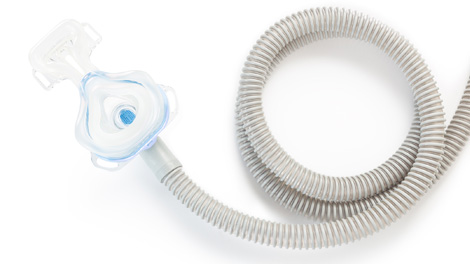
About three years ago, Beti Maxey was under significant stress. As a high school teacher in the Cleveland schools, she was involved in many school projects, including the school newspaper, which kept her away from home and awake past midnight most nights. What’s more, her husband’s career as a pipe fitter took him across the country for weeks at a time.
Mrs. Maxey was on the go so much during the day that she couldn’t understand why she wasn’t sleeping at night. For those sleepless nights, she filled her bedroom with things to keep her busy; her crocheting tools, laptop and remote control were by her bedside at all times.
“It would take me forever to go to sleep, and then I would wake up and couldn’t go back to sleep. I had problems going to sleep, and then I had problems staying awake.”
“It would take me forever to go to sleep, and then I would wake up and couldn’t go back to sleep,” says Mrs. Maxey, who fell into a deep depression and wound up taking a leave of absence from teaching. “I had problems going to sleep, and then I had problems staying awake.”
It wasn’t until her daughter visited from Florida to help with house chores and other daily tasks that Mrs. Maxey sought help from Cleveland Clinic. After an overnight sleep study, or polysomnogram, during which physicians recorded her eye movements and brain and muscle activity to analyze sleep patterns, Mrs. Maxey was diagnosed with sleep apnea and insomnia. People with untreated sleep apnea are unaware that they stop breathing repeatedly during sleep due to airway blockage. These episodes can disrupt sound sleep and lead to many other complications.
Under the care of Michelle Drerup, PsyD, at Cleveland Clinic’s Sleep Disorders Center, Mrs. Maxey was treated for her sleep apnea with Continuous Positive Airway Pressure (CPAP), a specially designed mask that pushes air into a patient’s airways to keep them open. In addition, Dr. Drerup recommended the center’s Sleep Skills Group to give Mrs. Maxey effective coping tools for her insomnia.
“The Sleep Skills Group is a four-week program that uses ideas and strategies from cognitive behavioral therapy for insomnia,” Dr. Drerup explains. “This approach is an effective alternative to sleeping pills. Mrs. Maxey was a great candidate for the group because she was very motivated to work on her sleep difficulties and was excited to learn new skills and make changes in her behavior to improve her sleep.”
With the help of Dr. Drerup and CPAP, Mrs. Maxey is now sleeping through the night and waking up alert, ready to start her day. The Sleep Skills Group helped her identify her insomnia triggers and taught her the necessary skills to change.
“It seems as though [Dr. Drerup] could understand everyone’s problem,” says Mrs. Maxey, adding that physicians helped patients figure out a system best suited for each individual. “They made it so easy. They not only added a name to it, but they gave us reasons why and things we could actually do to change our situation.”
Organized with comfy chair recliners set in a calming environment, each group session focused on identifying insomnia triggers, including lifestyle habits and negative thoughts. Participants also engaged in relaxation training. Guest speakers led open discussions and provided informational handouts.
“Everyone had a chance to tell their story, and I think each person’s story helped everyone else,” says Mrs. Maxey “It made me feel better just to know that I felt that way, too, but I just didn’t know how to express it.”
Mrs. Maxey continues to weave the relaxation tapes and practices she learned from the support group into her daily routine. She goes to bed at 11 p.m. and wakes up at 7:30 a.m., and she takes no sleep medications. Most importantly, she practices good sleep hygiene by using her bedroom only for sleep. Her days are much easier to get through. In fact, she’s decided to launch her own business devoted to all-natural skin care.
“My insomnia is getting less and less,” she says. “I don’t take naps during the day because my sleep now is a deeper sleep, and I have more energy.”
Related Institutes: Neurological Institute

